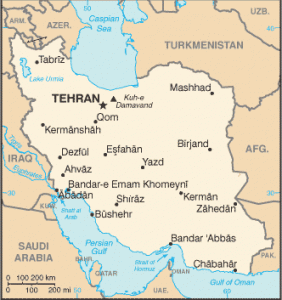A public back-and-forth between Iranian and Western diplomats may lead to a delay in the nuclear negotiations with world powers in Moscow later this month.
 Iran’s top nuclear negotiator Saeed Jalili on Wednesday criticized the European Union diplomat Catherine Ashton, who acts as a middle -man between Iran and the P5+1, for dragging her feet in setting up smaller meetings with deputies and experts in between the major talks.
Iran’s top nuclear negotiator Saeed Jalili on Wednesday criticized the European Union diplomat Catherine Ashton, who acts as a middle -man between Iran and the P5+1, for dragging her feet in setting up smaller meetings with deputies and experts in between the major talks.
In a letter to Ashton’s office, Jalili said, “The other side’s delay in holding meetings between deputies and experts put into question their determination to hold positive negotiations in Moscow. The Islamic Republic of Iran, with a clear logic and definite initiatives, is ready to engage in forward-looking negotiations for cooperation.”
Iran sought an experts meeting ahead of the Moscow talks. But EU diplomats refused, claiming to be weary of getting bogged down before getting to the substance of a political resolution.
“I am not saying technical issues are irrelevant,” a European diplomat told Al Monitor Thursday. “We need Iran to engage seriously on the substantial proposal we have put forward…as this is a political decision for them to make that cannot be solved at a technical level. We cannot be drawn into long procedural and protocol discussions without substance for the sake of buying time.”
But Western powers have not put forth a “substantial proposal.” Instead, they’ve demanded Iran halt all or most of its uranium enrichment – thus denying the rights afforded them under international treaties – and have refused to ease the harsh economic sanctions dragging down Iran’s economy.
All of this is being done in an environment of intimidation. As Reza Nasri over at PBS Frontline’s Tehran Bureau put it recently, “world powers are again poised to ‘solve’ an international crisis through an ‘agreement’ that is essentially predicated on intimidation, illegal threats of military action, unilateral ‘crippling’ sanctions, sabotage, and extrajudicial killings of Iran’s brightest minds.”
After the failed talks in 2009 and 2010, wherein Obama ended up mysteriously rejecting the very deal he demanded the Iranians accept, as Harvard Prof. of international affairs Stephen Walt wrote last week, the Iranian leadership “has good grounds for viewing Obama as inherently untrustworthy.”
The Iranians have offered a full stop to uranium enrichment at 20 percent – the supposed pretext for these talks – so long as the West agrees to ease the economic warfare crippling Iran’s energy and banking sector. But the West has not yet responded to such overtures, which could lead to a breakdown of talks altogether.


